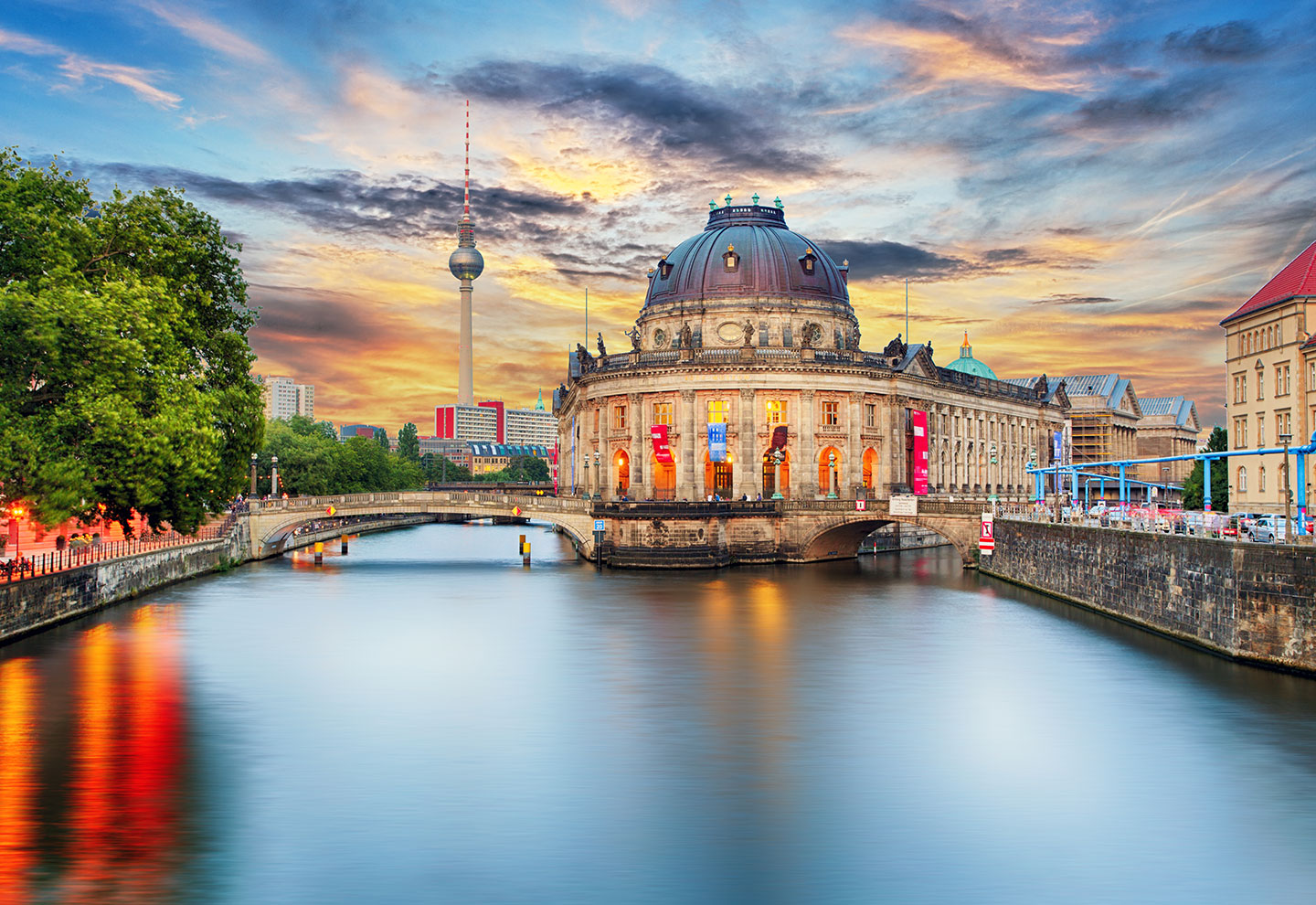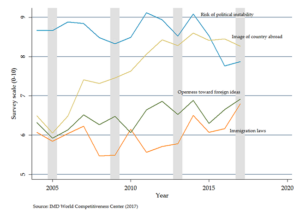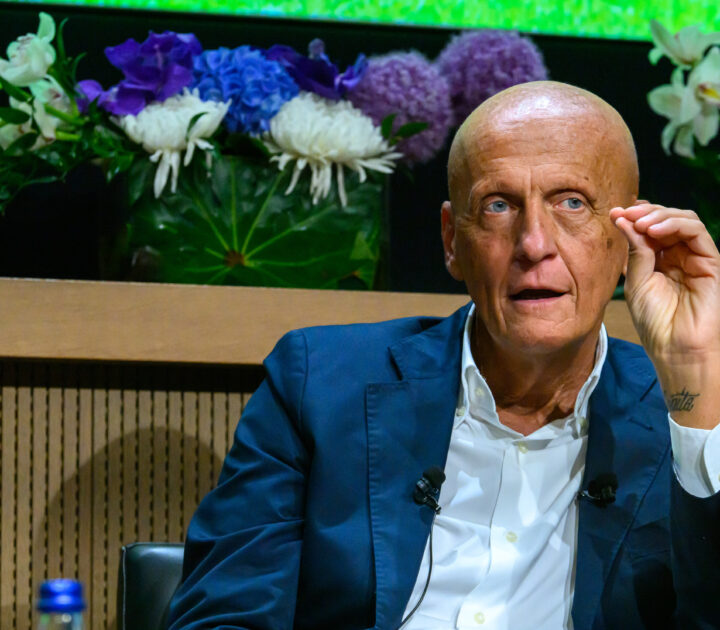
The German election & sentiments on migration
Mrs. Angela Merkel, the Chancellor of Germany, has led her country in successful economic performance since she took office in 2005. Indeed, Germany exhibits increasing values in the traditional economic indicators. In the last five years, hard data reveal growth in national income, household disposable income, trade in goods and services as well as employment rate, suggesting a strong and healthy economy.
The traditional wisdom among political analysts is that growing economies are the best defense to nativist rhetoric. Yet, this does not seem to be the case in Germany. The largest and most successful economy in Europe, is still without a government after the September 2017 elections.
What can the thoughts of the business leaders of the country reveal about this situation? In this edition of the Criterion of the Month, we will examine some Executive Opinion Survey responses by mid- and upper-level managers in Germany to explore their opinion about the economy.
The graph provides information on four criteria for the years 2004 to 2017, the period of Mrs. Merkel’s leadership in Germany. The grey bars reflect the election year.
Managers in Germany feel that the branding of their country enjoys positive support in the world. The yellow curve in the graph below displays an increasing confidence in the response to the question “Does the image of your country abroad encourage business development?” Focusing on the last five years, the response to this question remains more or less constant.
The same outcome holds for the question related to national culture. More specifically, the response of mid- and high-level managers to the question “Is the national culture open to foreign ideas?” remains more or less unchanged the last five years with a 2017 value equal to 6.9 out of the 10 possible points. The green curve in the graph captures this criterion.
What has changed substantially in the last five years is the response related to immigration laws. Managers responding to the question “Do immigration laws prevent your company from employing foreign labor?” present a more friendly environment for immigrants. The orange line below reflects that in the last five years there is an increase from 5.6 to 6.8 out of the 10 possible points.
The evolution of different criteria in Germany: 2004-2017
Interestingly, the policy and attitude towards immigrants has been generally offered as one of the reasons for not having reached a political consensus about the government in Germany yet. The success of anti-immigration parties in the latest elections – in particular Alternative fur Deutschland (AfD) which gained more than 12% of total votes, becoming the third largest party in the Bundestag – points in this direction, highlighting how divided the German electorate is on migration issues. This interesting outcome, the difference between the replies of the managers and the preferences of the average German, eloquently demonstrate the keen friction that exists between some economic and social dimensions.
Note that managers seem to reflect correctly the political framework. Thus, as the blue curve in the graph shows, managers feel that in the last five years there has been a higher risk of political instability. While in 2014 this seems to have been out of the question, the value has decreased from almost 9 to 7.9 out of 10 in the last three years.
How to address this friction is indeed a challenging undertaking for Mrs. Merkel. However, she is not alone. Similar trade-offs are present in other countries on both sides of the Atlantic. This may be a thought-provoking quest for 2018.
Research Information & Knowledge Hub for additional information on IMD publications
Many executives say they don’t have time for mindfulness practices, such as daily meditation. An alternative is micro-presence: weaving moments of ...
Earlier this month, the European Union began executing its tariffs on China for electric vehicle (EV) imports, yet the dated practice of taxing pro...
This paper introduces the New Industrial Policy Observatory (NIPO) data set and documents emergent patterns of policy intervention during 2023 asso...
Technological innovation, advances in remote work, and reshaped post-pandemic priorities have led to companies hiring fractional leaders, or part-t...
Research Information & Knowledge Hub for additional information on IMD publications
Research Information & Knowledge Hub for additional information on IMD publications
Research Information & Knowledge Hub for additional information on IMD publications
Research Information & Knowledge Hub for additional information on IMD publications
Research Information & Knowledge Hub for additional information on IMD publications
in I by IMD 5 July 2024
Research Information & Knowledge Hub for additional information on IMD publications
in The World Economy July 2024, vol. 47, no. 7, pp. 2762-2788, https://doi.org/10.1111/twec.13608
Research Information & Knowledge Hub for additional information on IMD publications
in HBR.org 2 July 2024
Research Information & Knowledge Hub for additional information on IMD publications
Research Information & Knowledge Hub for additional information on IMD publications
in I by IMD 28 June 2024
Research Information & Knowledge Hub for additional information on IMD publications






